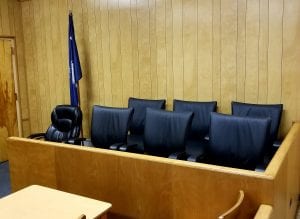While many lawyers believe opening statements make or break trials, others focus on their closing argument to win cases. Consequently, here is what we think wins jury trials in DWI cases.
So What is a Good Closing Argument?
 While every part of a jury trial is important, many lawyers believe their closing argument can win or lose a DUI case. Hence, they put a lot of effort into this final chance to win over the jury. So what works and what does not? Because Mr. Reeves has tried cases for over 28 years, he has a pretty good idea of what works. First, we keep our case as simple as possible. After all, most jurors do not want to try to learn complicated legal principles. Instead, they relate more to what they know from seeing and hearing drunk folks in real life. In addition, the judge will instruct them to use their collective life experiences during deliberations.
While every part of a jury trial is important, many lawyers believe their closing argument can win or lose a DUI case. Hence, they put a lot of effort into this final chance to win over the jury. So what works and what does not? Because Mr. Reeves has tried cases for over 28 years, he has a pretty good idea of what works. First, we keep our case as simple as possible. After all, most jurors do not want to try to learn complicated legal principles. Instead, they relate more to what they know from seeing and hearing drunk folks in real life. In addition, the judge will instruct them to use their collective life experiences during deliberations.
While lawyers like to use big words in life, never try to impress jurors during trial.
Court Rules for Closing Argument
This is the part where the attorney must sell their argument to the jury and argue how the evidence presented during trial supports their version of events. However, the courts in North Carolina have laid down some ground rules for what attorneys are not allowed to do during closing argument to the jury. Some of these are:
- Arguments cannot be based on religion.
- Name calling of the defendant.
- Comparing the defendant to an animal.
- Remarks based on the defendants looks, such as that he should be convicted because he looks like a criminal.
- Any racial references unless it directly relates to the case on hand.
- Reference to national tragic events that may bias the jury against the defendant.
- Personal beliefs or experiences of the attorney presenting the argument to the jury.
- Personal attacks on opposing council or witnesses.
- Attorney cannot ask the jury to put themselves in the victim’s shoes.
- Attorney should not ask jury to make a decision based on community sentiment.
- Cannot argue general deterrence.
- Attorney should not try to appeal to the fear of a juror.
- Attorney should not tell jury of possible outcomes of the case on appeals, parole, etc.